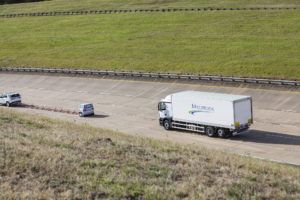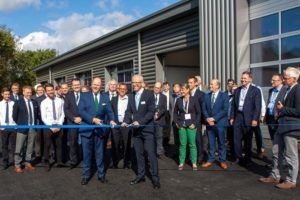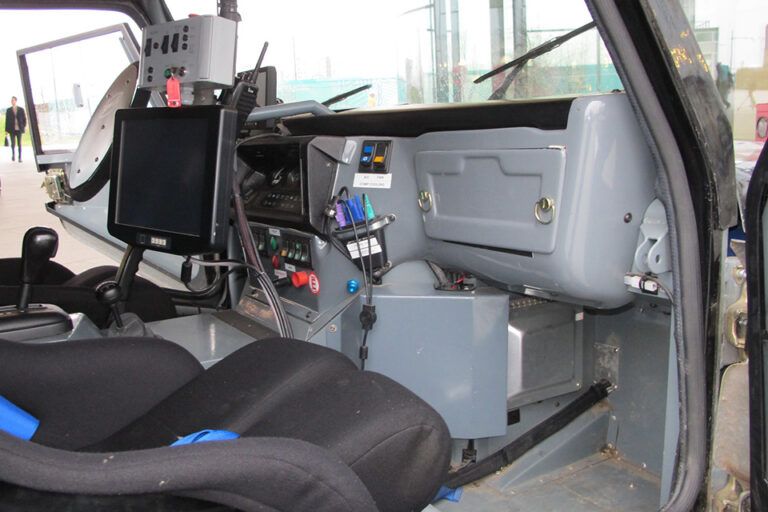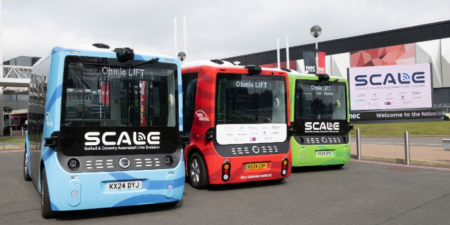The UK Government is working on a ‘MOT’ (Ministry of Transport) test for self-driving cars, with the new assurance system aiming to ensure their safety before mainstream sale and on-road use of connected and automated vehicles (CAVs).
The UK’s position as a world leader in the safe testing and roll-out of self-driving vehicles has been further cemented by a new safety regime, called CAV Pass, being pioneered by the UK’s Minister for the Future of Transport, George Freeman. To ensure self-driving vehicles are safe and secure by design and minimize any defects ahead of their testing, sale and wider deployment on UK roads, the government is developing an assurance system using its world-leading expertise in vehicle safety and cyber security within government, industry and academia.
 The new safety assurance system will first focus on enabling the advanced trialing of self-driving vehicles, and aims to eventually help assure the safety and security of these vehicles for their mainstream sale and widespread use on public roads. Such advanced trials may include those without a human operator in the loop at all times, or the assessment of novel vehicle types such as pods and shuttles for ‘first-mile/last-mile’ mobility in heavily pedestrianized areas. The work builds on the world-leading code of practice for automated vehicle trials first launched by the UK in 2015 and updated this year with clearer guidance on: conducting trials safely and responsibly; improving transparency of testing; and engaging with the public, authorities and other relevant bodies when planning pilot programs.
The new safety assurance system will first focus on enabling the advanced trialing of self-driving vehicles, and aims to eventually help assure the safety and security of these vehicles for their mainstream sale and widespread use on public roads. Such advanced trials may include those without a human operator in the loop at all times, or the assessment of novel vehicle types such as pods and shuttles for ‘first-mile/last-mile’ mobility in heavily pedestrianized areas. The work builds on the world-leading code of practice for automated vehicle trials first launched by the UK in 2015 and updated this year with clearer guidance on: conducting trials safely and responsibly; improving transparency of testing; and engaging with the public, authorities and other relevant bodies when planning pilot programs.
As part of its CAV safety initiative, the Minister has also officially opened the Autonomous Village, a new self-driving vehicle test facility at Millbrook-Culham with 44 miles (70km) of secure test tracks, a private mobile network and a simulator suite. This will be part of a network of self-driving vehicle test facilities across the country, coordinated by UK government and industry-backed automated vehicle development hub, Zenzic (formerly Meridian). The new proving ground will allow developers to safely challenge systems and collect data, to help fine-tune software, sensors, 5G cellular telecommunications and cyber security systems.
 “Self-driving vehicles can offer significant rewards for the UK’s economy, road safety and accessibility. We are determined to lead in the testing and development of safe autonomous transport,” said Freeman. “This is new terrain, and with our national expertise the UK is well-placed to blaze the trail globally by developing a global benchmark for assuring the safety and security of this exciting technology.”
“Self-driving vehicles can offer significant rewards for the UK’s economy, road safety and accessibility. We are determined to lead in the testing and development of safe autonomous transport,” said Freeman. “This is new terrain, and with our national expertise the UK is well-placed to blaze the trail globally by developing a global benchmark for assuring the safety and security of this exciting technology.”
Director of campaigns for road safety charity Brake, Joshua Harris, said, “Connected and autonomous vehicles have enormous potential to eliminate driver error and help put an end to the daily tragedy of deaths and serious injuries on our roads. The technology and its potential is hugely exciting, but it’s critical that these vehicles are robustly tested for safety before allowing them on our roads. We support the leading role being played by UK government on this important agenda for safe mobility and the safety assurance regime will undoubtedly be fundamental to its future success.”





